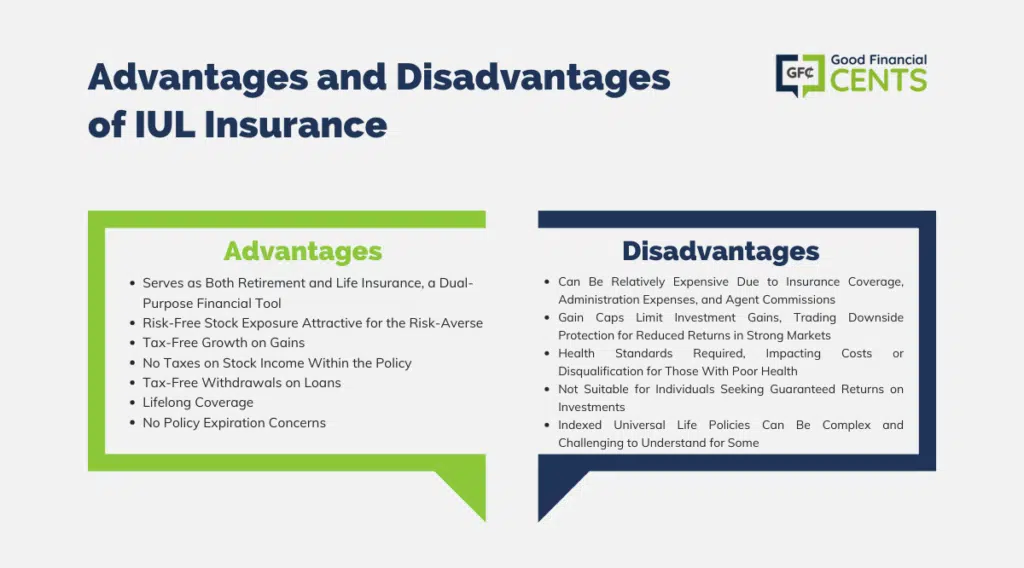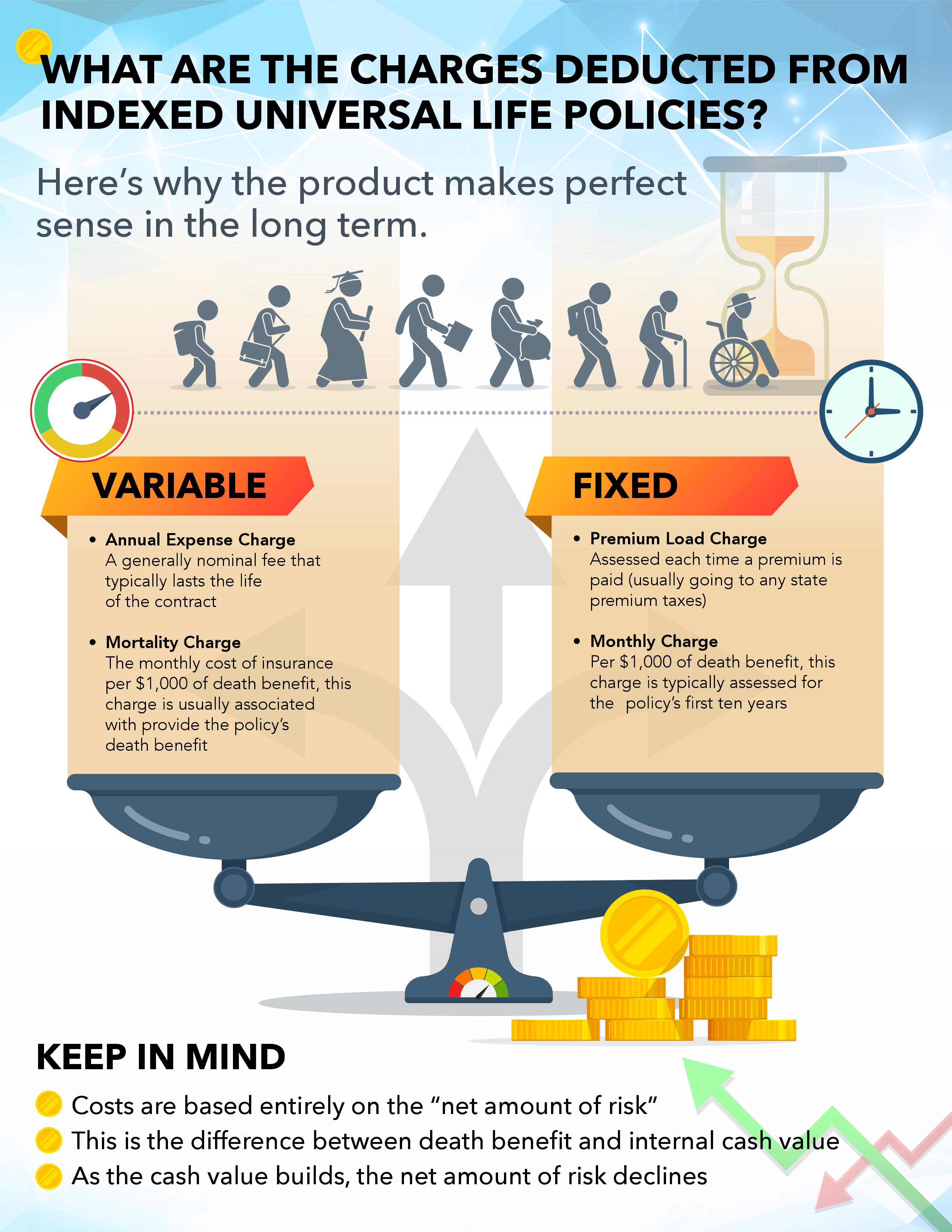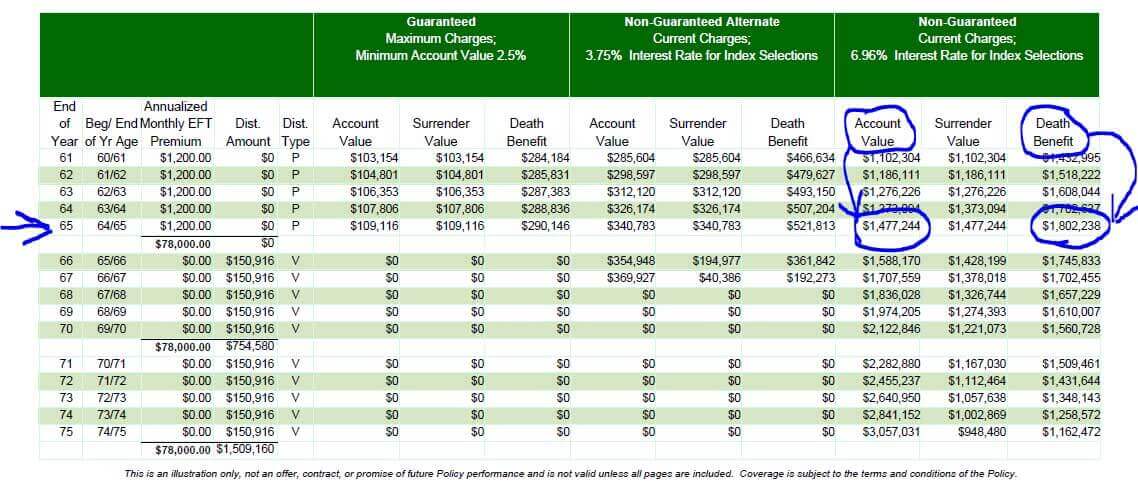All Categories
Featured
Table of Contents
1), commonly in an effort to beat their group standards. This is a straw man argument, and one IUL people like to make. Do they compare the IUL to something like the Lead Total Stock Exchange Fund Admiral Show no tons, an expense proportion (EMERGENCY ROOM) of 5 basis factors, a turnover proportion of 4.3%, and a phenomenal tax-efficient document of circulations? No, they compare it to some dreadful actively handled fund with an 8% tons, a 2% EMERGENCY ROOM, an 80% turnover proportion, and an awful document of short-term funding gain circulations.
Mutual funds commonly make annual taxed circulations to fund proprietors, even when the worth of their fund has dropped in value. Mutual funds not only call for income coverage (and the resulting yearly taxation) when the common fund is rising in value, but can also impose revenue taxes in a year when the fund has dropped in value.
That's not just how shared funds function. You can tax-manage the fund, collecting losses and gains in order to decrease taxable distributions to the investors, yet that isn't somehow mosting likely to transform the reported return of the fund. Just Bernie Madoff kinds can do that. IULs stay clear of myriad tax obligation traps. The ownership of mutual funds might call for the common fund owner to pay projected taxes.

IULs are very easy to place to make sure that, at the proprietor's fatality, the beneficiary is exempt to either income or estate tax obligations. The same tax decrease methods do not function nearly also with mutual funds. There are countless, commonly costly, tax obligation catches connected with the moment purchasing and marketing of shared fund shares, traps that do not put on indexed life insurance policy.
Chances aren't very high that you're going to be subject to the AMT because of your common fund circulations if you aren't without them. The rest of this one is half-truths at best. While it is true that there is no income tax obligation due to your beneficiaries when they inherit the earnings of your IUL policy, it is likewise true that there is no revenue tax obligation due to your successors when they inherit a common fund in a taxed account from you.
Indexed Universal Life Insurance For Retirement
There are better means to prevent estate tax obligation issues than getting financial investments with reduced returns. Shared funds may trigger earnings taxes of Social Safety advantages.

The growth within the IUL is tax-deferred and might be taken as free of tax earnings through lendings. The policy owner (vs. the mutual fund manager) is in control of his/her reportable revenue, thus enabling them to decrease or perhaps remove the taxation of their Social Protection advantages. This set is terrific.
Below's one more very little problem. It's true if you acquire a mutual fund for state $10 per share right before the distribution day, and it distributes a $0.50 distribution, you are after that mosting likely to owe tax obligations (most likely 7-10 cents per share) despite the truth that you haven't yet had any type of gains.
In the end, it's really regarding the after-tax return, not how much you pay in taxes. You're likewise most likely going to have more cash after paying those tax obligations. The record-keeping needs for possessing mutual funds are substantially a lot more complicated.
With an IUL, one's records are maintained by the insurer, copies of annual declarations are sent by mail to the proprietor, and circulations (if any) are amounted to and reported at year end. This is additionally type of silly. Certainly you ought to maintain your tax documents in situation of an audit.
The Difference Between Whole Life And Universal Life Insurance
Rarely a reason to acquire life insurance policy. Shared funds are commonly part of a decedent's probated estate.
On top of that, they go through the delays and costs of probate. The proceeds of the IUL policy, on the various other hand, is always a non-probate distribution that passes beyond probate straight to one's named recipients, and is consequently exempt to one's posthumous financial institutions, undesirable public disclosure, or similar hold-ups and costs.
Medicaid disqualification and life time earnings. An IUL can offer their owners with a stream of earnings for their entire life time, regardless of exactly how lengthy they live.

This is valuable when arranging one's affairs, and converting properties to income before an assisted living facility arrest. Common funds can not be transformed in a comparable way, and are virtually always thought about countable Medicaid properties. This is one more silly one promoting that poor people (you recognize, the ones that require Medicaid, a government program for the inadequate, to spend for their retirement home) should utilize IUL rather of common funds.
Minnesota Life Iul
And life insurance policy looks terrible when compared relatively versus a retirement account. Second, people who have money to purchase IUL above and past their pension are going to have to be awful at handling money in order to ever before get Medicaid to pay for their assisted living facility prices.
Chronic and terminal ailment rider. All policies will permit a proprietor's simple accessibility to cash from their plan, commonly waiving any kind of surrender fines when such people endure a major health problem, need at-home treatment, or end up being confined to a retirement home. Mutual funds do not supply a similar waiver when contingent deferred sales charges still use to a common fund account whose owner requires to sell some shares to money the expenses of such a remain.
History Of Universal Life Insurance
Yet you get to pay even more for that advantage (motorcyclist) with an insurance coverage. What an excellent bargain! Indexed universal life insurance policy provides death benefits to the beneficiaries of the IUL owners, and neither the owner neither the beneficiary can ever before shed cash due to a down market. Shared funds offer no such guarantees or survivor benefit of any kind of kind.
I certainly do not need one after I reach financial self-reliance. Do I want one? On standard, a purchaser of life insurance pays for the true price of the life insurance advantage, plus the expenses of the policy, plus the earnings of the insurance coverage company.
Should I Cancel My Universal Life Insurance Policy
I'm not totally sure why Mr. Morais included the entire "you can't lose money" once again here as it was covered fairly well in # 1. He just wanted to repeat the very best marketing point for these things I suppose. Once again, you don't shed small dollars, however you can shed genuine bucks, along with face severe possibility expense because of low returns.

An indexed global life insurance policy policy owner might trade their plan for a completely various plan without triggering income tax obligations. A common fund proprietor can stagnate funds from one mutual fund company to an additional without offering his shares at the former (therefore activating a taxable occasion), and repurchasing brand-new shares at the latter, often subject to sales costs at both.
While it is true that you can exchange one insurance plan for one more, the factor that people do this is that the first one is such an awful plan that even after getting a new one and going via the early, adverse return years, you'll still appear ahead. If they were offered the ideal plan the very first time, they should not have any type of desire to ever before exchange it and go through the early, negative return years once again.
Table of Contents
Latest Posts
Cost Insurance Life Universal
Iul L
Iul Insurance Calculator
More
Latest Posts
Cost Insurance Life Universal
Iul L
Iul Insurance Calculator